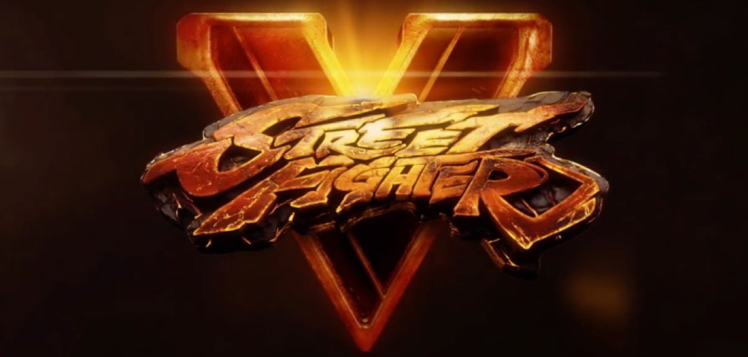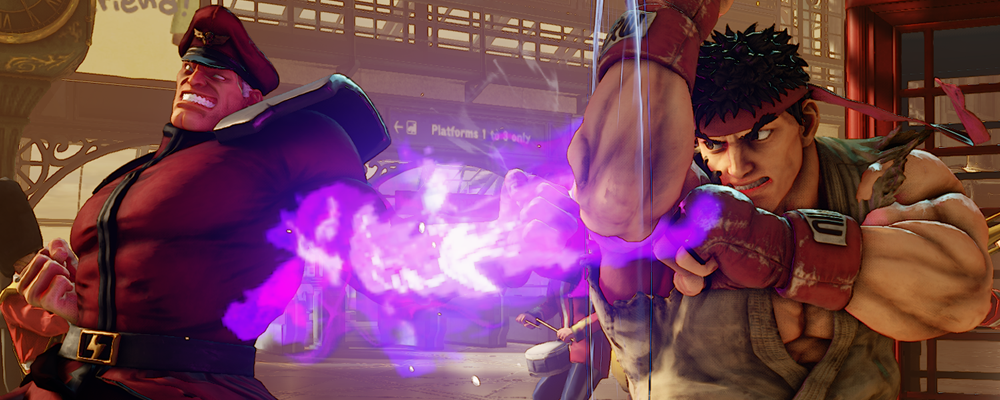Fighting game competitors have it so good today versus the ’90s.
Cramming into an arcade has been swapped with hotel ballrooms and event centers. Beating the local 7-Eleven champions has been replaced with beating global grand masters. Winning a bracket scores you thousands of dollars as opposed to a slightly used Capcom T-shirt. And watching the best players compete no longer requires having a friend that is willing to hook you up with a fifth generation VHS tape.
Hanging out at TwitchCon underlines how good we have it today, what with the comforts of livestreaming and the legitimacy of esports evolving on a daily basis. With that growth, however, even games with a timeless competitive appeal like Street Fighter need to subtle shifts.
To figure out what those shifts actually are, specifically for Capcom’s initiative with Street Fighter V, I spoke with Matt Dahlgren, the director of marketing and esports at Capcom of America.
GamesBeat: What are you doing in relation to Street Fighter V?
Matt Dahlgren: I’ve been a part of the fighting-game team for many years now, and Street Fighter is actually unique because it is owned by Capcom USA. So we have a very large fighting team structure that is in place there that handles everything, from our product marketing to our licensing business. There are also some levels of development oversight as well, so if there is anything that has to do with Street Fighter as a brand, I am involved in it at some capacity.
GamesBeat: You mentioned Street Fighter V is a Capcom of America product?
Dahlgren: Yeah, it’s owned by Capcom of America, yet it’s still developed out of Japan. It’s just that one [Capcom of America] office owns the rights to everything. So, we’re still a Japanese company as a whole … and the game is still being developed by Capcom in conjunction with Dimps out of Japan. But the actual title is owned by the U.S. office.
GamesBeat: About Capcom Pro Tour … now, Evolution is a part of the Capcom Pro Tour.
Dahlgren: It is. They’re still an independent organization. But Capcom Pro Tour as a whole is run out of the office.
GamesBeat: What does it take for an independent event to become a part of the Capcom Pro Tour?
Dahlgren: It’s pretty much up to our discretion.
We have a very strong team that is built from people who come from the fighting game community. So we look at various tournament organizers and the ones that we feel are really pushing the bar in terms of production capabilities and really trying to rise the fighting scene to new heights, we want to partner up with those.
So when we created the Capcom Pro Tour, we didn’t want to come in and basically take over the competitive scene. We wanted to create a structure that provided opportunity for everyone that’s involved. So … all of the tournaments, with the exception of Capcom Cup, are still run and are independent organizations, but, we basically tried to band everyone together to tell a better story of what goes on [in the fighting game tournament scene] throughout the year.
GamesBeat: I was really active in the fighting game scene up until around when the Capcom Cup came into play. For people like me that haven’t been keeping up, can you explain the structure? It sounds like a joint ladder system?
Dahlgren: Basically what it is doing [is that] it takes the fighting game scene that has existed for many, many years … and like, all it is doing is taking advantage of the structure and getting everyone to work together to tell a better narrative of what goes on throughout the year.
So now the events are not necessarily competing with each other, they’re more working together to tell a larger story.
So the way the Capcom Pro Tour works is we have 32 spots up for grabs to qualify for the Capcom Cup. The Capcom Cup is our year-end finale. We’ve got 16 premiere events. Anyone that wins a premiere event will automatically qualify for the Capcom Cup.
Then we are partnered with 40 other tournaments on the side, which we call ranking events. They all get ranking points for the top eight placements and then we track those on our leaderboards. That determines our next 15 spots.
Then we automatically invite the previous year’s champion, which round up to 32.
GamesBeat: Obviously, this is worldwide
Dahlgren: Yes! We put a lot of effort to make sure Capcom Pro Tour is a globally minded league. We split up the premiere events and ranking events evenly per territory, so North America, Europe, and Asia all have the same amount of points. Then for the remaining category we split those up into either emerging markets or events we consider to be global.
Like EVO brings in talent from all over the world, so we consider that a part of our global structure.
GamesBeat: How is Street Fighter V playing into the Capcom Cup? Or perhaps Capcom Cup playing into Street Fighter V? Is one affecting the design of the other?
Dahlgren: I would say, really the Capcom Pro Tour was built for Street Fighter V. We just wanted to launch it earlier [running the Street Fighter IV series] to make sure we got into a good rhythm before Street Fighter V came out.
But Street Fighter V is the first Street Fighter that has been created with esports in mind. We’ll be balancing the game during the Capcom Pro Tour to show respect towards the competitive scene. We’re also going to have some announcements in the near future as to how the game will tie in directly with the Capcom Pro Tour.
But … Street Fighter V is really the product that we believe is going to help Street Fighter rise as a competitive product and help the fighting game community grow over all.
GamesBeat: Are there any details you can reveal about, or just explain, how Street Fighter V is being designed for esports?
Dahlgren: Well … hrm … OK, I can tell you this. So, the Capcom Pro Tour starts in March and ends in December, right?
GamesBeat: Right?
Dahlgren: So when we’re looking at rebalancing things, that’s our season that we’re going to build around. The beginning of spring is where we would make any kind of drastic changes, to kind of work things out for the season. We’ll make sure to not do any significant balance adjustments before a huge event like an EVO or a Capcom Cup.
So this is just one example of how the game itself is going to … evolve … with the Capcom Pro Tour.
GamesBeat: Hmmm.
Dahlgren: And that’s just the beginning. We have a lot of concepts that we’re putting together. We know online play is going to be a really huge focus for Street Fighter, so we want to make sure there are online components to the Capcom Pro Tour.
Things will make a lot more sense and layer together in the very near future.
GamesBeat: So I run tournaments myself, and I know several other tournament organizers run into this problem as well. One thing I have a concern with when I look at Street Fighter V is the DLC and unlockable characters. If I have, say, four or five PlayStation 4s, it’s a potential pain in the ass to have to unlock all of that stuff, just to ensure that my competitors can use their characters. Is there any kind of functionality, or plan, to help tournament organizers that face that problem?
Dahlgren: That’s definitely been a topic of discussion internally. We want to make sure that our tournament organizers have an easy time running the tournaments themselves. We don’t have a solution to announce just yet, but, we will be in talks with tournament organizers so that they don’t have to essentially purchase all the content themselves.
How far wide-reaching we’re going to be is still to be determined, but it is definitely a conversation point and something we need to solve.
GamesBeat: We’re here at TwitchCon. Is there anything you guys have going on with Street Fighter V, Capcom, and Twitch?
Dahlgren: We’re a huge partner with Twitch. Capcom Pro Tour is actually a 50/50 joint effort between Capcom and Twitch. We have a lot of discussions with them. We’re definitely having talks and trying to make sure we can implement whatever functionality they’re focusing on, in our game.
I mean, livestreaming as a whole is really responsible for the growth in esports in the last few years. So, we definitely value Twitch as a platform and want to keep investing in that and keep livestreaming growing.
GamesBeat: I have a lot of other questions, but they’re all stuff you likely can’t answer. Such as, well, are we going to see Blanka coming out in Brazil?
Dahlgren: [Laughs] We will have a character announcement in Brazil, but I can’t tell you what character it is. But I think our Brazilian fans are going to be very happy.
GamesBeat: So what’s up with the next beta phase?
Dahlgren: What I can say is that our next beta phase is going to happen. We’ll have more information in the next couple of weeks. This next beta is going to be our largest technical hurdle to overcome. The most amount of features are going to be going into it. This is also our first time testing cross-platform play. We’ll also mix the roster up so players get to play different characters than they did the first time around.
But, before we reveal specific details, we want to make sure our plans are solid.
VentureBeat's mission is to be a digital town square for technical decision-makers to gain knowledge about transformative enterprise technology and transact. Learn More


